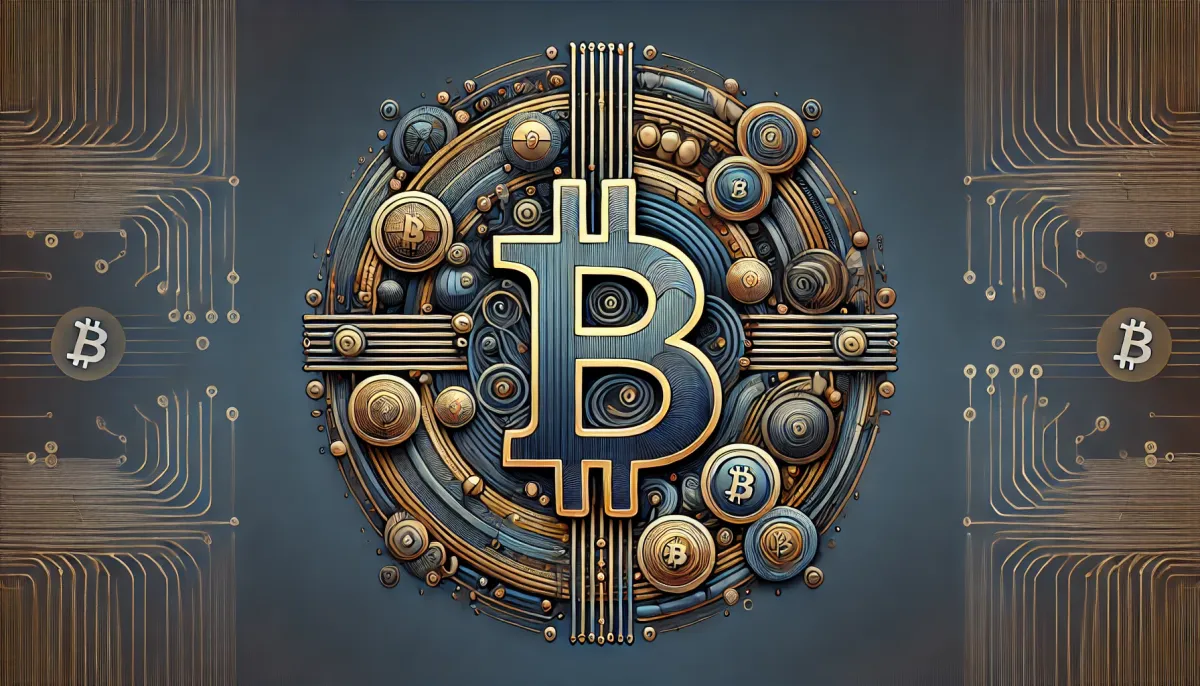Bitcoin Circular Economies in Suriname: A Path to Economic Independence
Jan 1, 2025Explore how Bitcoin circular economies are taking root in Suriname, aiming for financial autonomy and rejecting traditional systems. Learn about its practical applications, challenges, and future outlook.
Bitcoin Circular Economies in Suriname: A Path to Economic Independence
The concept of Bitcoin circular economies in Suriname is gaining significant traction, fueled by a desire for financial autonomy and a rejection of traditional, centralized systems. This movement aims to create a self-sustaining economic ecosystem where Bitcoin is not just an investment, but a practical medium of exchange, unit of account, and store of value. This article explores how this approach is taking root in Suriname, driven by innovative individuals and a vision for a more equitable future.
What is a Bitcoin Circular Economy?
A Bitcoin circular economy operates on the principle of peer-to-peer transactions, where individuals and businesses trade goods and services directly for Bitcoin. This system bypasses the need for traditional intermediaries like banks, and is free from state censorship and regulations. It fosters a meritocratic environment where participation is based on skill, effort, and the ability to contribute value.
 Credit: www.murrayrudd.pro
Credit: www.murrayrudd.pro
This approach is fundamentally different from traditional fiat-based economies that are often subjected to government regulations and interventions. In a Bitcoin circular economy, the focus is on supply and demand, creating a more free and accessible market. This means no permits, subsidies, or quotas, fostering a more open and competitive environment. The use of Bitcoin also enables a secure, globally accessible, permissionless, and peer-to-peer network for transactions, eliminating concerns of censorship, seizures, and high fees.
Suriname's Unique Position
Suriname, a small South American nation, is at the forefront of this movement. The country's current economic challenges, compounded by government corruption and a lack of financial inclusion, make it particularly receptive to the promise of Bitcoin circular economies. The push for Bitcoin adoption is driven by a desire to dismantle the existing financial system and create a more transparent, equitable alternative. A presidential hopeful, Maya Parbhoe, has even made the adoption of Bitcoin as legal tender a central tenet of her campaign, aiming to replace the Suriname dollar entirely with Bitcoin. This would include paying salaries in Bitcoin and decentralizing the financial system.
 Credit: dailycoin.com
Credit: dailycoin.com
The potential of Bitcoin to combat corruption and promote transparency is a major driving force behind this movement in Suriname. By leveraging Bitcoin’s transparent nature, it is believed that corruption can be reduced, and resources can be directed more effectively towards the citizens. This move towards financial autonomy is also a form of resistance against international financial institutions like the IMF, which are often seen as imposing economic constraints on developing nations.
Practical Applications in Suriname
The vision for Bitcoin circular economies in Suriname extends beyond just currency. It aims to create a comprehensive ecosystem where Bitcoin is used in all facets of daily life. This includes:
- Brick-and-mortar stores: Encouraging local businesses, from grocery stores to restaurants, to accept Bitcoin payments.
- Freelance jobs and gigs: Creating a platform for individuals to offer their skills and services for Bitcoin payment.
- Bitcoin AirBnB: Facilitating rental of apartments and other accommodations using Bitcoin.
- Health clinics and pharmacies: Enabling healthcare providers to accept Bitcoin for services, bypassing traditional insurance and payment plans.
- Bitcoin fundraising: Offering a censorship-resistant way to raise money for various causes and projects.
- Proxy merchants: Bridging the gap between the fiat and Bitcoin economies by enabling access to goods and services without KYC requirements.
These practical examples show the potential of Bitcoin to create a parallel economy, where goods and services are traded freely and efficiently, without the need for traditional financial structures.
Overcoming Challenges and Future Outlook
While the vision for Bitcoin circular economies in Suriname is promising, there are also challenges that must be addressed. These include:
- Education: Ensuring that citizens are educated about Bitcoin and its practical use.
- Infrastructure: Building the necessary infrastructure to support Bitcoin transactions.
- Potential Resistance: Overcoming resistance from local elites and international financial institutions.
- Volatility: Addressing potential issues related to Bitcoin's price volatility.
However, if successful, Suriname could become a model for other nations seeking economic independence and a more decentralized approach to governance. By integrating sustainable practices and promoting financial literacy, Suriname could lead the way in demonstrating the power of Bitcoin to transform economies and empower individuals. The future of Bitcoin circular economies in Suriname will be dependent on effective implementation, community engagement, and overcoming the challenges that lie ahead.
Conclusion
The movement towards Bitcoin circular economies in Suriname represents a bold step towards financial independence and a rejection of traditional, centralized systems. By leveraging the power of Bitcoin, Suriname is seeking to create a more equitable, transparent, and sustainable economy. While challenges remain, the potential benefits of this approach, particularly in terms of economic empowerment and reduced corruption, are significant. As Suriname moves forward on this path, the world will be watching closely to see if this vision of a Bitcoin-driven economy can become a reality.
SEC Accounting Bulletins on Digital Assets: SAB 121 and SAB 122
Explore the complexities of SEC's Staff Accounting Bulletins 121 and 122, their impact on crypto custody, and the pushback from the financial industry and Congress. Learn about the ongoing debate on digital asset regulation.
Published Jan 23, 2025
Understanding the Collectibles Landscape: Baseball Cards, Stamp Paper, and the Rise of Trump Coin
Explore the world of collectibles, from baseball cards and stamp paper to the digital Trump Coin. Compare market dynamics, investment potential, and unique characteristics.
Published Jan 23, 2025
The Potential for a USA Digital Asset Stockpile: Exploring the Future of Cryptocurrency Reserves
Explore the potential of a USA digital asset stockpile, examining Trump's evolving stance, legislative initiatives, benefits, challenges, and the role of a crypto working group.
Published Jan 23, 2025